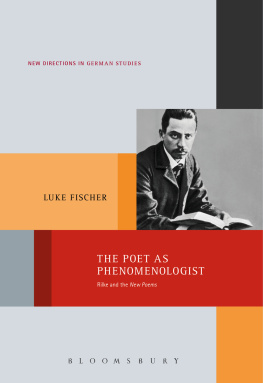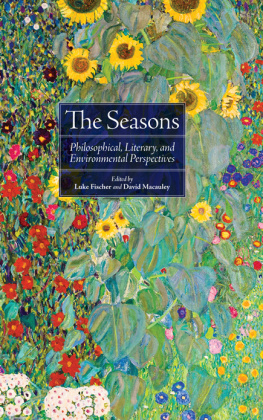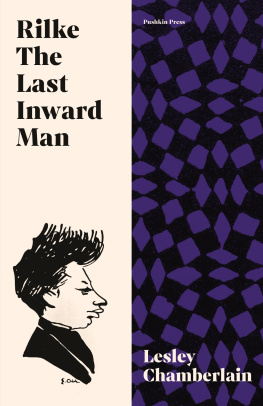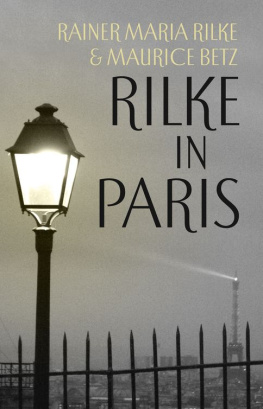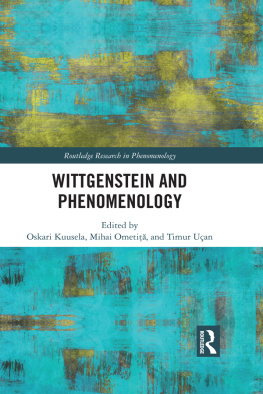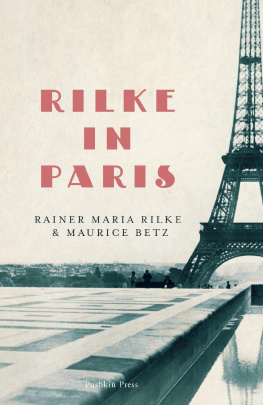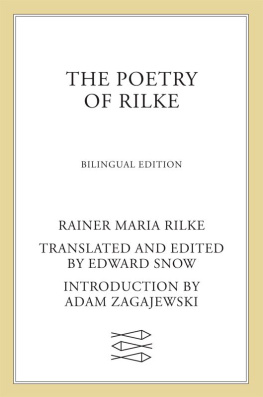NEW DIRECTIONS IN GERMAN STUDIES
Vol. 10
Series Editor:
Imke Meyer
Editorial Board:
Katherine Arens, Roswitha Burwick, Richard Eldridge, Erika Fischer-Lichte, Catriona MacLeod, Stephan Schindler, Heidi Schlipphacke, Ulrich Schnherr, James A. Schultz, Silke-Maria Weineck, David Wellbery, Sabine Wilke, John Zilcosky.
Volumes in the series:
Vol. 1. Improvisation as Art: Conceptual Challenges, Historical Perspectives
by Edgar Landgraf
Vol. 2. The German Pcaro and Modernity: Between Underdog and Shape-Shifter
by Bernhard Malkmus
Vol. 3. Citation and Precedent: Conjunctions and Disjunctions of German Law and Literature
by Thomas O. Beebee
Vol. 4. Beyond Discontent: Sublimation from Goethe to Lacan
by Eckart Goebel
Vol. 5. From Kafka to Sebald: Modernism and Narrative Form
edited by Sabine Wilke
Vol. 6. Image in Outline: Reading Lou Andreas-Salom
by Gisela Brinker-Gabler
Vol. 7. Out of Place: German Realism, Displacement, and Modernity
by John B. Lyon
Vol. 8. Thomas Mann in English: A Study in Literary Translation
by David Horton
Vol. 9. The Tragedy of Fatherhood: King Laius and the Politics of Paternity in the West
by Silke-Maria Weineck
The Laughter of the Thracian Woman: A Protohistory of Theory
by Hans Blumenberg, translated by Spencer Hawkins (forthcoming)
Viennas Dreams of Europe: Culture and Identity beyond the Nation-State
by Katherine Arens (forthcoming)
To Jakob Ziguras and the art of poetic thinking
The Poet as
Phenomenologist
Rilke and the New Poems
Luke Fischer
Bloomsbury Academic
An imprint of Bloomsbury Publishing Inc
We speak of inspiration, and the word should be taken literally. There really is inspiration and expiration of Being, respiration in Being, action and passion so slightly discernible that it becomes impossible to distinguish between who sees and who is seen, who paints and what is painted
Maurice Merleau-Ponty
And twofold Always. May God us keep
From Single vision and Newtons sleep.
William Blake
Contents
First and foremost I would like to thank my wife, Dalia Nassar, for her constant support, constructive comments, and engaging conversations over the many years in which I have worked on this project. I would like to thank Christoph Jamme for his keen interest in this interdisciplinary research from its early stages up until the present and for his invaluable comments on drafts of this manuscript. I am also grateful for the DAAD Post-Doctoral Research Grant that I received in 2009 in order to work on this book under the sponsorship of Christoph Jamme at Leuphana University. I would like to thank the Rilke scholar, Manfred Engel, and the philosophers, Anthony Steinbock and Richard Eldridge, for their interest in this project and their helpful comments on drafts of this manuscript. I am also grateful to John Grumley for his feedback on an early draft of the book. Much of the initial research for this book was undertaken in Tbingen, Germany, and part of my time in Tbingen was supported by a DAAD Research Grant. I am grateful to Manfred Frank for sponsoring this grant and to the conducive intellectual community I found in Tbingen. I would like to thank my friend Jakob Ziguras for many years of stimulating conversations about the relation between poetry and philosophy, and Lutz Nfelt for his friendship and illuminating discussions of Rilkes poems. I am also grateful to David Macauley for fruitful conversations about environmental philosophy and poetry. Many friends, family members, and academics have assisted this project in diverse ways; while I will not name them all here, I am immensely grateful for their support.
The central argument as well as much of the research for this book were completed as early as 2007 (a hundred years after the first of volume of Rilkes Neue Gedichte [ New Poems ] was published). The overall project had assumed written form by 2008 (the centenary of the second volume of New Poems ). Since then I have undertaken further research and both revised and polished the monograph a number of times. Nevertheless, the fundamental argument and thoughts remain unchanged, and I had originally planned to publish The Poet as Phenomenologist: Rilke and the New Poems earlier than 2015. Why do I mention this?
For many years I have seriously pursued both philosophy and the creative writing of poetry (as well as academic literary studies). These two pursuits have both benefited and conflicted with each other. It had been my aim to publish the present work and subsequently to publish my first collection of poems. There were two reasons behind this aim (in addition to my love of writing poetry). First, one of the main conclusions of The Poet as Phenomenologist is that the art of poetry can address certain philosophical problems more adequately than philosophy itself. In other words, the present work provides a philosophical justification for the writing of poetry. Second, there is an intimate connection between my interpretation of Rilkes New Poems and central features of my poetry collection Paths of Flight (North Fitzroy, VIC: Black Pepper, 2013). The poetry collection creatively explores and expands on some of the key concerns of the present work. In short, I wanted to publish The Poet as Phenomenologist prior to Paths of Flight , as this order reflects the chronology of my own development and the former, in significant respects, provides a hermeneutic, critical, and philosophical horizon for the latter.
It is likely that the above aim was limited by a one-sidedly philosophical orientation. Poems mediate their own background and message, even if they do not conceptualize them. Nevertheless, I am glad that both The Poet as Phenomenologist and Paths of Flight are now in print.
In addition to the theme of dualism, a central theme of The Poet as Phenomenologist is Rilkes poetic vision of the natural world. In recent years my knowledge of ecocriticism and environmental philosophy has deepened significantly. While I have made some references to scholarship in these areas, it did not seem necessary or advantageous to the main argument of the present work to reframe the consideration of nature in light of scholarship in the environmental humanities. Nevertheless, there are numerous ways in which my approach to Rilke could contribute to current debates in these areas. I have published some articles that contribute to these debates, and plan to make further contributions to scholarship in ecopoetics and environmental philosophy.
In The Poet as Phenomenologist I have generally sought to discuss phenomenology and Rilke in a way that is intelligible to readers who have not previously specialized in either or both of these areas. Nevertheless, some of the more philosophical parts of this work may be challenging to those with little background in philosophy or theory. While philosophical issues are discussed throughout the text, onward, which is where the focus on Rilke begins.
The Poet as Phenomenologist draws on many German sourcesGerman philosophy, literary criticism, prose, and poetry. However, I wanted to make the text accessible to readers without German. Due to the many quotations from German sources I was faced with the dilemma of how to render English translations without sacrificing dimensions of meaning that are inevitably lost in translation. The compromise I reached was to substitute English translations for the excerpts from German prose (philosophical, critical, and literary prose); however, due to the untranslatability of poetry I have provided quotations from German poems in their original form and English translations in the footnotes. The reader without German can, thereby, still follow the discussion of the poems.

